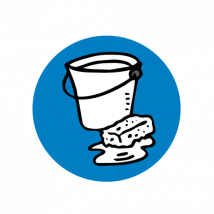COVID-19 INFORMATION
Stay Up to Date with COVID-19 Vaccines
What You Need to Know:
Resources: Stay Up to Date with COVID-19 Vaccines | CDC
COVID-19 Over-the-Counter Test Kit Updates
In response to the end of the COVID-19 Federal Public Health Emergency (PHE), the following changes will be made pertaining to COVID-19 Over-the-Counter (OTC) Test Kits.
Effective May 12, 2023, COVID-19 OTC test kits will no longer be covered by your medical or pharmacy healthcare plan. Members may still purchase OTC test kits at various locations at retail pricing. Check your healthcare plan for further information.
Please note: COVID-19 testing in an office or outpatient setting will be covered under the medical healthcare plan as a diagnostic service.
COVID-19, or coronavirus disease 2019, is an upper respiratory tract disease caused by one of the seven coronaviruses known to infect humans. It was first identified in humans in Wuhan, Hubei Province, China, in December 2019. The virus that causes COVID-19 is called SARS-CoV-2. You can learn more about COVID-19 here.
This virus was first detected in Wuhan City, Hubei Province, China. The first infections were linked to a live animal market, but the virus is now spreading from person-to-person. It’s important to note that person-to-person spread can happen on a continuum. Some viruses are highly contagious (like measles), while other viruses are less so. The virus that causes COVID-19 seems to be spreading easily and sustainable in the community (“community spread”) in some affected geographic areas. Community spread means people have been infected with the virus in an area, including some who are not sure how or where they became infected.
Community spread means people have been infected with the virus in an area, including some who are not sure how or where they became infected.
Based upon available information to date, those at high-risk for severe illness from COVID-19 include:
• People aged 65 years and older
• People who live in a nursing home or long-term care facility
• Other high-risk conditions could include:
○ People with chronic lung disease or moderate to severe asthma
○ People who have heart disease with complications
○ People who are immunocompromised including cancer treatment
○ People of any age with severe obesity (body mass index [(BMI)]≥40) or certain underlying medical conditions, particularly if not well controlled, such as those with diabetes, renal failure, or liver disease might also be at risk
○ People who are pregnant should be monitored since they are known to be at risk with a severe viral illness, however, to date data on COVID-19 has not shown an increased risk
Click here to reference the most up-to-date COVID-19 Toolkit regarding coverage and reimbursement of COVID-19 vaccines, vaccine administration, and more.
Available scientific studies all indicate the vaccines are safe and effective. However, each individual needs to make the decision of whether or not to receive the COVID-19 vaccine based on their own personal circumstances. This can be hard because of the large amount of available information regarding COVID-19. To help with this, we are providing the following information from the Ohio Department of Health about the safety and efficacy of the COVID-19 vaccine.
Learn more here.
AultCare recommends utilizing the Vaccine Finder to identify the best vaccine location It can be found here. There are many opportunities to receive the vaccine and you may choose the methods that’s best for you. You may also use this resource from the federal government: Vaccines.gov - FindCOVID-19 vaccine locations near you
The CDC recommends the following actions:
• Wear a mask
• Stay 6 feet apart
• Avoid crowds
• Wash your hands
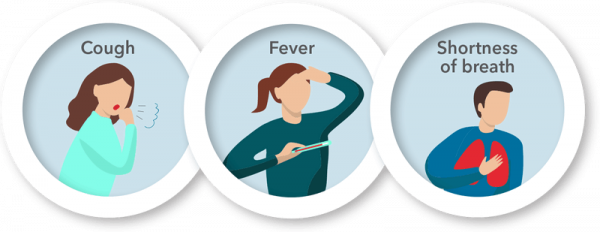
Reported illnesses have ranged from mild symptoms to severe illness and death for confirmed coronavirus disease 2019 (COVID-19) cases.
COVID-19 is believed to spread mainly from person to person – between people who are in close contact (within 6 feet) with one another and through respiratory droplets produced when an infected person coughs or sneezes.
These symptoms may appear 2-14 days after exposure.
• Fever
• Cough
• Shortness of breath
You can learn more about the symptoms of COVID-19 here.
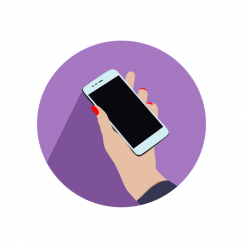 Call a healthcare professional, such as your Primary Care Physician, if you develop a fever and/or symptoms of respiratory illness -- such as cough or shortness of breath -- within 14 days of travel from an affected area or within 14 days of close contact with a COVID-19 patient.
Call a healthcare professional, such as your Primary Care Physician, if you develop a fever and/or symptoms of respiratory illness -- such as cough or shortness of breath -- within 14 days of travel from an affected area or within 14 days of close contact with a COVID-19 patient.
Older people, people with underlying medical conditions, and people with compromised immune symptoms should contact a healthcare provider early.
If you experience severe symptoms (e.g., persistent pain or pressure in the chest, new confusion or inability to arouse, or bluish lips or face), contact a healthcare provider or emergency department and seek care immediately.
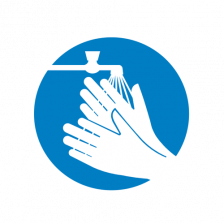
|

|
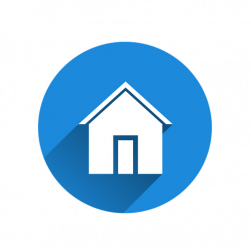
|
| Clean your hands often • Wash your hands often with soap and water for at least 20 seconds, especially after you have been in a public place, or after blowing your nose, coughing, or sneezing. • If soap and water are not readily available, use a hand sanitizer that contains at least 60% alcohol. Cover all surfaces of your hands and rub them together until they feel dry. • Avoid touching your eyes, nose, and mouth with unwashed hands. |
Avoid close contact • Social distancing also called “physical distancing,” means keeping a safe space between yourself and other people who are not from your household. To practice social or physical distancing, stay at least 6 feet (about 2 arms’ length) from other people who are not from your household in both indoor and outdoor spaces. • Put distance between yourself and other people if COVID-19 is spreading in your community. This is especially important for people who are at higher risk of getting very sick. |
Stay home if you’re sick
|
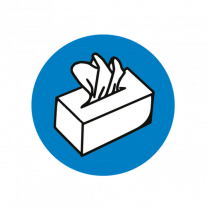
|
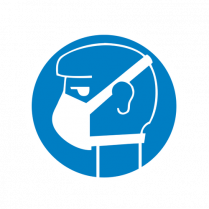
|
|
|
Cover coughs and sneezes
|
Wear a face mask out in public |
Clean and disinfect
|
• The Ohio Department of Health opened a call center to answer questions regarding COVID-19. Licensed nurses and infectious disease specialists are available to answer questions and provide accurate information about COVID-19, the risk to the public, and the state’s response. You can contact the call center at 1-833-427-5634.
• To view all communication by Governor Mike DeWine, click here.
• Since the beginning of the pandemic, AultCare continues to lead our communities to improved health through a variety of COVID-19 initiated programs and services for members
